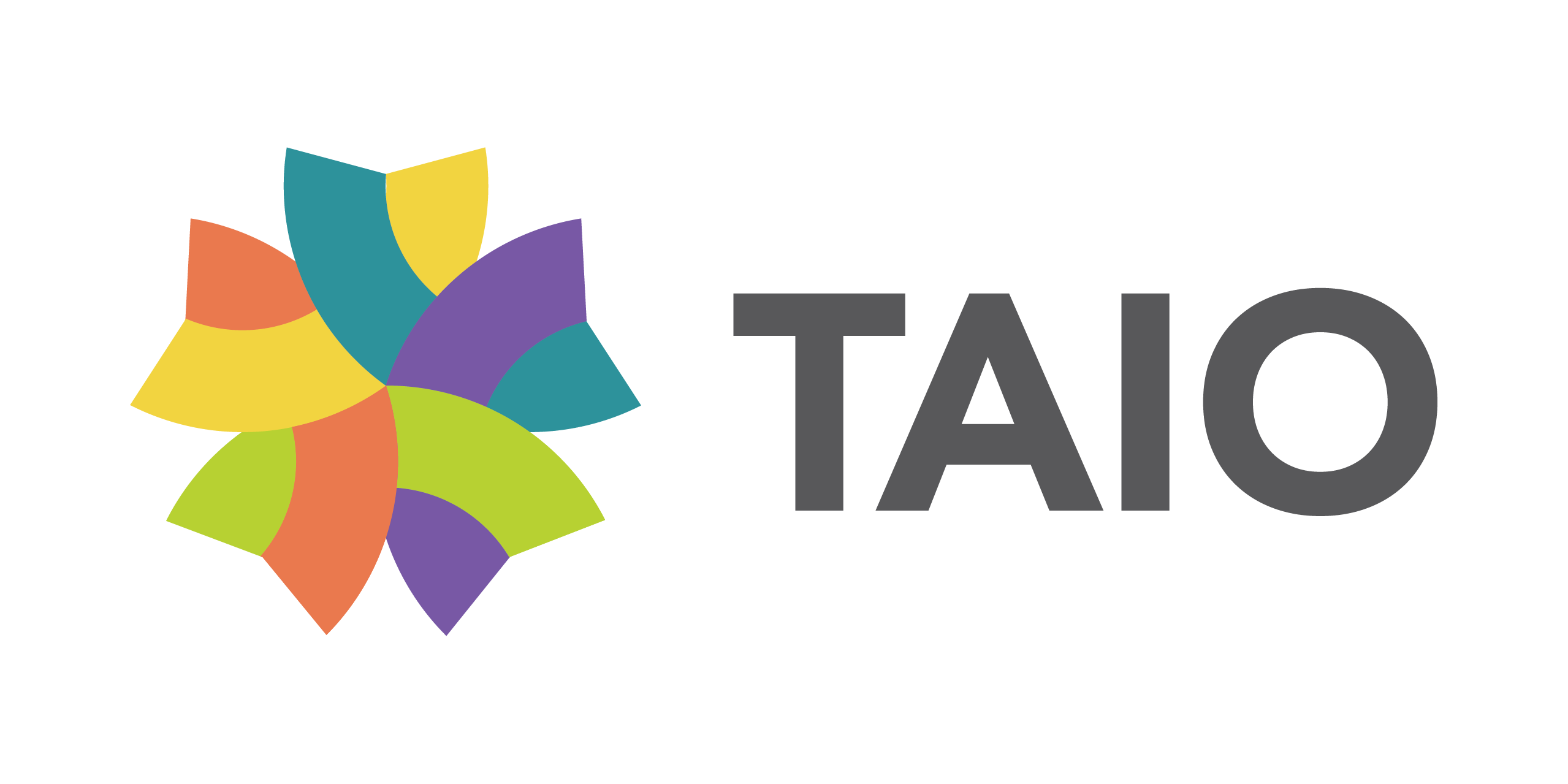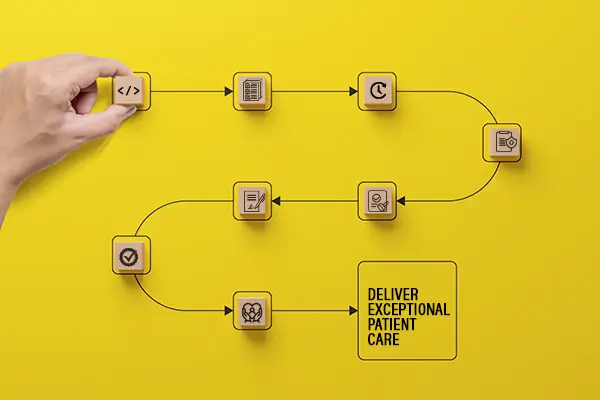Imagine every claim approved on the first try, your payments on time, and revenue flowing without disruption.
Skilled medical coders make this possible by accurately translating clinical documentation into compliant codes.
And when outsourced, you save time, reduce denials and keep your operations running smoothly, letting your staff deliver exceptional patient care.
On this page
Key Takeaways
Accurate medical coding by skilled medical coders ensures a smooth revenue cycle management, minimizing denied claims and protecting financial performance.
Choosing certified coders or working with a reputable medical coding company guarantees comprehensive medical coding services that maintain compliance and support the revenue cycle.
Outsourcing medical coding services allows health care providers to reduce errors, optimize the medical coding process and focus on patient care.
Medical Coders: What Do They Do?
Medical coders are central to clean claims and faster reimbursement.
They convert clinical data from medical records into International Classification of Diseases (ICD), Current Procedural Terminology (CPT) and Healthcare Common Procedure Coding System (HCPCS) codes for diagnoses and medical procedures.
Key responsibilities:
- Review medical records for completeness and accuracy.
- Assign ICD, CPT and HCPCS codes for diagnoses and medical procedures.
- Ensure claim accuracy to protect the revenue cycle and reduce denied claims.
- Maintain compliance with industry guidelines and regulatory standards.
- Support the billing process by collaborating with medical billers and health care providers.
Every time a code is off, somebody pays for it; usually, it’s you.
One wrong code can freeze $40K in claims. Upcoding or vague notes? That can trigger a CMS audit and force you to defend every visit.
Billing and Coding: Know the Difference
Coding tells you the story of care; billing makes sure you get paid for it.
- Medical coding: Coders review documentation and assign the correct ICD, CPT and HCPCS codes to represent diagnoses and medical procedures.
- Medical billing: Billers take those codes and prepare accurate medical claims to send to insurance carriers, ensuring providers get paid for services rendered.
Billing begins where medical coding ends. When workflows break down, the result is denials, lost revenue and added risk for health care practices.
Strong vs. Weak Medical Coding Process and How Much It Costs You
See what you gain with strong medical coding and what it costs you when it’s weak.
Strong Medical Coding Process |
Weak Medical Coding Process |
Time and Money Lost |
|
Coders assign accurate codes that match documentation |
Staff submit mismatched codes and diagnoses |
$40K+ in delayed reimbursements |
|
Teams maintain complete and compliant records |
Teams submit vague or incomplete medical records |
Hours wasted fixing claims; higher audit risk |
|
Coders and billers communicate and coordinate |
Teams fail to share updates and create coding gaps |
Days added to each claim |
|
Teams follow the American Medical Association (AMA) and World Health Organization (WHO) coding guidelines |
Staff skip compliance checks and make coding errors |
Fines, repayments and regulator scrutiny |
|
QA teams catch errors before submission |
Staff fix mistakes only after insurers deny claims |
Up to an hour wasted per claim |
Medical coding impacts your entire operation.
Therefore, coders must work with precision, speed and compliance.
For agencies stretched thin, outsourcing medical coding services offers a smarter way forward, but first, let’s break down the core responsibilities that coders handle daily.
Code Assignment and Documentation Review
Actionable tip:
Even experienced coders must train through certification programs and ICD-10/CPT update courses to code accurately and support a clean revenue cycle.
Compliance and Quality Control
Coders protect the agency by enforcing compliance with payer rules, Medicaid services and federal regulations. They maintain data integrity, audit documentation and align codes with evolving standards.
What can go wrong:
Ignoring updates to coding systems or skipping standardized codes for medical equipment exposes your agency to denied claims and compliance risks that directly cut your revenue cycle.
Technology and Data Management
Coders can now use artificial intelligence and advanced coding systems to speed up the medical coding process, boost accuracy and maintain data integrity. These tools suggest codes based on physician notes and patients’ medical records, but coders must validate every recommendation to ensure accuracy.
Tools you can use:
Platforms like 3M™ CodeFinder, Optum CAC and Nuance CDE One help coders assign standardized codes faster, flag documentation gaps and strengthen Electronic Health Record (EHR) data accuracy.
The key is using these tools as decision support, not replacements for coding accurately.
Interdepartmental Collaboration and Support
Coders are the bridge between billers, clinicians and administrators. Their job is to spot gaps in documentation, clarify details when records are incomplete and make sure codes align with the care provided.
When coders and billers work closely, claims are sent out more efficiently, denials drop and the revenue cycle keeps moving.
Pro tip: Push coders to dispute unclear documentation the same day. Quick collaboration with health care providers keeps coding accurate, prevents billing delays and trains clinicians to document better.
What to Look for in a Home Health Care Medical Coder?
Hiring the right medical coder can make or break your revenue cycle. Beyond credentials, focus on real-world skills that keep claims clean, compliance intact and reimbursements timely.
Key factors to evaluate:
Criteria |
Minimum Requirements |
What to Look For |
|
Education and Credentials |
High school diploma or equivalent; associate degree preferred |
Familiarity with coding systems, certification programs and CMS guidelines; certified coders or training in ICD/CPT updates |
|
Home Health Experience |
1–2 years handling authorization or coding tasks |
Experienced coders who understand payer rules, Medicaid services and the nuances of home health documentation |
|
Authorization and Coding Efficiency |
Basic knowledge of prior authorization and coding workflows |
Can monitor requests, track approvals, work with a team, code accurately and maintain data integrity |
|
Communication and Patient Care |
Clear verbal and written skills |
Maintains clear communication with clinicians, insurers and patients; interprets physician notes and patients’ medical records accurately |
|
Problem-Solving and Custom Solutions |
Follows procedures and resolves issues |
Delivers practical solutions, escalates issues and ensures documentation aligns with standardized codes, regulations and billing needs |
Expert tip:
Give coders a set of past claims and ask them to verify whether the medical code matches the services rendered. This helps assess their ability to apply correct codes consistently and demonstrates the importance of accuracy and practical judgment in medical coding.
Medical Coders Cost: Rates, Outsourcing Options and the Right Fit
Medical coding rates depend on experience, certification and the complexity of services.
Agencies can hire freelancers, outsourcing firms or specialized solutions to handle complex workflows and insurance coordination.
Below, we’ll explore the factors that affect coding rates, the different hiring options available and how choosing the right setup can get you the right efficiency and accuracy for your agency.
What Drives Medical Coder Rates in the Health Care Industry?
Rates for medical coders vary widely depending on experience, certification level and whether you’re hiring freelancers or through outsourcing agencies.
Here are the cost drivers for health care providers:
- Experience and specialization
Medical coders with deep expertise in ICD, CPT and HCPCS medical codes, especially in high-demand specialties like cardiology or oncology, require higher rates, and medical coding companies often charge more for these specialists.
- Technical proficiency
Coders skilled in EHR systems (Epic, Cerner, Athenahealth) and payer portals process claims faster and with fewer errors. Whether you hire directly or outsource medical coding, technical proficiency saves you time and money.
- Certification and compliance
Certified coders, such as those holding the Certified Professional Coder (CPC) or Certified Coding Specialist (CCS) credential, bring expert coding accuracy. Choosing uncertified talent for a medical coding job may look cheaper upfront, but creates rework, delays and compliance risks in the long run
- Location and hiring model
U.S.-based medical coders typically earn $25 to $45 per hour, with higher rates for specialties. Global outsourcing offers certified talent at more cost-effective rates, usually $10 to $20 per hour, depending on complexity and coverage needs. This balance lets practices cut costs without sacrificing accuracy or compliance.
- Scope of work
Basic claim coding is cheaper, while complex or multi-specialty cases demand higher rates. Medical coding companies often scale pricing based on workload and service depth.
Outsourcing Options: Freelancer vs. Agency for Health Care Providers
When claim volumes spike or specialized coding knowledge is required, in-house staff can struggle to keep pace. Outsourcing can be a practical solution, helping providers maintain accuracy, stay compliant and reduce administrative strain.
Deciding whether to work with a freelancer or an agency comes down to the level of support and stability your coding operations demand.
Here’s a side-by-side comparison table that you can refer to:
Criteria | Freelancer | Outsourcing Agency |
Cost & ROI | Lower upfront cost; good for coding a small batch of claims or short-term projects | Higher upfront cost; includes structured support that reduces denials and delays, delivering stronger long-term ROI |
Oversight | You track progress, fix errors and manage deadlines yourself; quality varies by individual | Agency handles claims end-to-end with supervisors and QA teams, ensuring accuracy |
Scalability | Limited to one person, extra work means hiring another freelancer | Designed to expand quickly and absorb volume spikes without disrupting workflows |
Technology | Typically limited to payer portals or basic EHR access | Offers advanced tools: dashboards, KPIs and alerts to track denials, turnaround and compliance |
Best For | Small practices with low-volume, hands-on operations | A hospital system coding thousands of multi-specialty claims each month |
Scenario example:
A two-physician practice might hire a freelancer to handle 170 claims weekly, keeping costs low and control high. But a 300-bed hospital likely submits thousands of claims monthly (across multiple coders), so outsourcing to an agency that offers scale, specialty support and 24/7 coverage is a practical solution.
The Best Hiring Option for Medical Coding Services
Freelancers give flexibility and lower upfront costs, but outcomes rely on your own oversight and the individual’s consistency.
Agencies provide scale, structured support and compliance safeguards, ideal for high-volume medical services where accuracy and continuity matter.
Bottom line:
Freelancers fit smaller setups with oversight; agencies fit providers who need stability, scale and protection against denials.
Stronger Revenue Cycles Through Skilled Medical Coding Outsourcing
Agencies can protect revenue and reduce denials when they work with certified coders. By outsourcing, you cut the admin burden, process cleaner claims and let clinicians focus on delivering quality medical services
Outsourcing medical coding delivers:
- Quicker claim turnaround that speeds reimbursements and reduces cash flow gaps.
- Lighter administrative load, giving providers and staff more time for direct patient care.
- Stronger revenue stability with fewer coding errors and reduced risk of claim denials.
- Built-in scalability, so support expands seamlessly as patient volumes grow.
- Tighter compliance control, backed by certified coders skilled in payer rules, EMRs and evolving regulations.
In home health, accurate and precise coding is everything.
Get coding right and you protect your revenue, your compliance and your patients’ trust.
Frequently Asked Questions
Certified medical coders ensure accurate coding of diagnoses, treatments and procedures within the health care industry. Their work supports compliance, minimizes claim denials and helps streamline revenue cycle management, ensuring providers get reimbursed correctly and on time.
Professional coding services connect clinical documentation with payer requirements by applying the correct medical codes. This accuracy strengthens the billing system, improves the quality of health records and reduces errors that cause delays in payments or compliance issues.
Continuous training programs help professional coders stay current with new payer rules, compliance updates and coding guidelines. Skilled coders who are consistently trained provide coding services that reduce administrative burden and support smoother revenue cycle management for health care providers.




